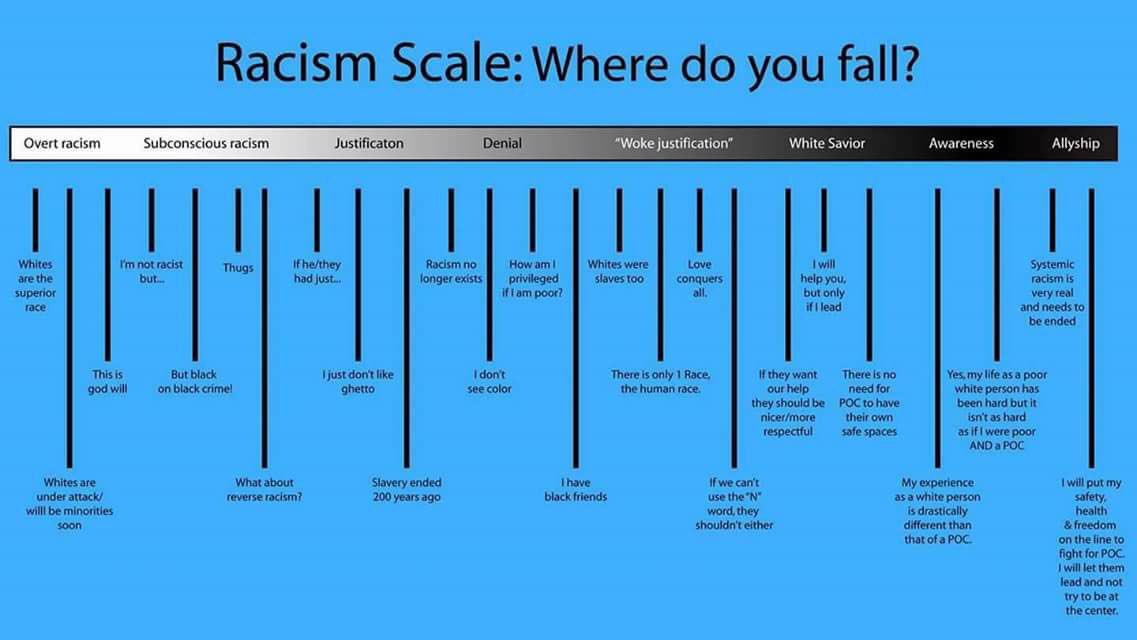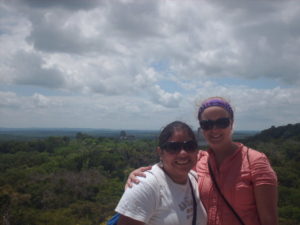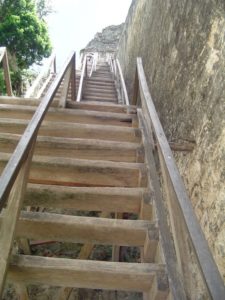Have you ever gotten somewhere and forgotten how you got there? We do it all the time with daily routines, going into auto-pilot mode for our most mundane tasks or daily excursions, so much so that sometimes we stop paying attention to what is happening until something out of the ordinary happens and gets our attention. Or, better yet – have you ever gotten somewhere and forgotten why you were there? Maybe it’s the grocery store or Target, or even your living room. You know you went in there for a reason, but for the life of you, you can’t remember what it was. Some say it’s a sign of aging, which is in part true, but it can also happen when we are stressed out or tired, and lack the capacity to retain information any longer.
This is where Elijah finds himself in our text. He is stressed out to the max, and on the run from Jezebel, longing for relief. He even asks the Lord to take his life; he is at his end. He finds himself revived in the wilderness, thanks to the attentiveness of angels sent from the Lord with bread and water. And while that sustains him physically, his spirit is still depleted. We hear earlier in the story of how Elijah is down and out, convinced that he is a failure as a prophet. Choon-Leong Seow describes his state this way:
This chapter is blatantly honest about the humanity of God’s servants . . . He appears to be totally worn out, fatigued . . . He complains. . . He needs to be told to eat. His view of reality is distorted. He is quick to blame others for the situation in which he has found himself. He feels all alone. Given his attitude, one should expect a divine rebuke. There is not one, however. Instead, there is a series of epiphanies . . . God does not let him go simply because he is burned out and depressed[i].
God responds in the opposite way, providing him the very basic things he needs to survive: bread and water, and calls him instead on a journey through the wilderness. Now, this is not the first time God has called a prophet into the wilderness. The Israelites hearing this story would have immediately connected the journey to that of Moses in Exodus, spending 40 days and nights with God on Mount Sinai. Here, God leads Elijah to Mount Horeb, which is the name used for Sinai in Deuteronomy. Such leading reminds us that:
when forces in the world threaten us, when our bodies or spirits turn against us, there is One who seeks us, One who meets us, One who heals us, whose love washes over us and sets us free for joy. This One is the Lord[ii].
God calls to Elijah with a question, “what are you doing here, Elijah?” (verse 9). It’s that moment of awakening, when you blink and come to your senses and try to orient yourself. ?” It’s as if God is displeased by Elijah’s flight, and wants Elijah to reset the course. We all need to hear this kind of call-out questions in life now and again. Sometimes we can offer them to ourselves; other times we need to hear them from others, and we hope they come from those who love us and have the best intentions in mind, rather than call-outs that are intended to shame us into correction. When done well, they become our re-orientation points, invitations to gain perspective and reevaluate our purpose so that we can pick back up the difficult everyday tasks of life and make it through. Sometimes our reflections on them are short-lived, but other times, as in the case of Elijah, they represent major turning points in our lives. Elijah is not only having a work crisis, but a spiritual one as well. In theological terms, we call this experience in the cave one of discernment – the process through which we seek to understand God’s will and then try to figure out how we can take a part in it.
But it’s not just limited to Elijah, or those on a hike in the wilderness. Such an experience is open to us, too. Our text this morning can be seen as an invitation to experience God’s unexpected encouragement for perseverance in the daily mazes of our lives, whether we are facing abundance, adversity, or dulling routine[iii].
When our souls are “disquieted within us” as the Psalmist says, we are invited to take refuge in God and hope in God, trusting that even in the midst of confusion about who we are, and who we are called to be, God is with us still.
In the Hebrew scriptures, the God of Israel often appeared in fantastic and dramatic ways. When we seek to encounter God with our questions, we yearn for those clear signs. Have you ever begged God for a burning bush, or some other direct divine revelation about what you are to do? I have. In seminary I would somewhat jokingly say that God would have to send a great fish, a la the Jonah story, to get me to figure things out. And yet, none of those tremendous things has happened to me, not yet anyway. Sometimes, it seems, God works in more subtle ways. This is what Elijah finds in 1 Kings. Did you catch the phrase that repeats after the wind, the earthquake, and the fire? “but God was not in” that tremendous sound. That is not to say that God never does those things. Indeed, we know God has from other Biblical narratives. But rather here, God acts in a new and perhaps more challenging way. God is heard in “the sound of sheer silence.”
A quick Hebrew lesson for you:
The words translated “a sound of sheer silence” (qol demamah daqqah) can have more than one meaning . . . Qol can mean either sound or voice, demamah can refer to a whisper, silence, or stillness (see Ps 107:29), and daqqah can mean thin, small, fine, or sheer. . . . In contrast to the thundering presence of the storm god Baal, Israel’s God is now present in “a sound of silence,” as in the sound of calm after a storm[iv].
It can be translated many ways, including “the sound of fine silence,” or conveying the sense of a hushed whisper. Such a sound allows for a centering, a meaningful pause. In the literary world, it might be classified as a “pregnant pause,” one that has energy brewing behind it, just on the cusp of something to be revealed.
This morning, I want to invite you to place yourselves in this story with Elijah, to join him in sitting with this question “what are you doing here?” and reflect on your sense of God’s presence in your life and the direction in which the Spirit might be nudging you. To help us truly engage in this moment, I will read part of our text again slowly with some help from Denise to capture the movement. Our time will include some significant moments of silence, during which I ask that you remain in that stillness and silence as best as you are able, allowing God’s presence to wash over you. Let us prepare to hear God’s Word anew to us:
11He said, “Go out and stand on the mountain before the Lord, for the Lord is about to pass by.” Now there was a great wind, so strong that it was splitting mountains and breaking rocks in pieces before the Lord,
[Denise plays – something swirling]
but the Lord was not in the wind; and after the wind an earthquake,
[Denise plays – something with lots of rumbling]
but the Lord was not in the earthquake; 12and after the earthquake a fire,
[Denise plays – something that resembles “crackling”]
but the Lord was not in the fire; and after the fire a sound of sheer silence.
[Significant pause]
13When Elijah heard it, he wrapped his face in his mantle and went out and stood at the entrance of the cave. Then there came a voice to him that said, “What are you doing here, Elijah?”
[Shorter pause]
What was this like for you? Take a few moments to check in with yourself.
The silence in this story is striking, particularly because it comes from God. Sometimes, we don’t know what to do with such a pause, or perceived silence from God. Renita J. Weems reflects on this in an autobiographical memoir, saying:
No one is ever prepared to endure the long silence that follows intimacy . . . no one is prepared to face it when it follows a season of intimacy with God. It is the hardest thing to talk about, and it is the hardest thing in the spiritual journey to prepare for[v].
She’s right. We don’t tend to like silence in our faith. It seemingly calls immediate attention to all the things we don’t know about God, or about ourselves – it highlights all the questions that we have about our faith and lives, and even in times of discernment, can bring about more questions than answers. And yet, embracing these moments are a crucial part of the faith journey, alongside a fervent trust that God is with us in these moments of silence, just as God was with Elijah. Weems continues by saying
Perhaps God is not silent but rather is waiting – waiting for human beings to gather their thoughts, compose themselves, regain their speech, and find their way back into the give-and-take of intimacy with God[vi].
Maybe that’s truly what discernment is all about; not so much discovering a specific set of actions we are supposed to do, but discovering how to reconnect with God when we are jolted out of a faith lived in auto-pilot, and forced to renew our understanding of purpose.
In the Superman movie, Man of Steel, a young Clark Kent becomes overwhelmed by all of the chaos in a school classroom. To escape his sensory overload, he literally bolts from the room, and is found hiding in the quiet comforts of the janitor closet. With teachers and students gathered outside, urging him to come out, his mother bursts into the hallway. Calmly, she kneels down by the door, and softly speaks to her son. She asks if he hears her voice. He responds yes. She tells him to focus on that, just her voice, to make it his island and swim toward it. After some time and lots of determination, Clark emerges and is immediately embraced by the loving arms of his mother.
After the sound of silence, Elijah emerges from the cave, humble and ready to hear what God would reveal. Here he experiences a bit of de ja vu, with God asking again “What are you doing here?” and Elijah offering the same response. Such repetition reminds us that even in times of discernment, we can come out in a similar place. And yet, God doesn’t leave Elijah there. God provides direction, specific directions about whom to anoint as the next king, and to whom Elijah is to pass on his mantle of leadership.
In other words, God tells Elijah to go back to work. Elijah does not have to give up his frustration, but God will not let him give in to it[vii].
The same is true for us today. In the midst of difficult decisions and discernment, and when confronted with challenging situations in our lives and our world, God does not just let us throw up our hands, declare it all doomed, and go hide in a cave. Instead, through the Holy Spirit, God nudges us into contemplation and reflection with the question “what are you doing here?” Such a question prompts us into active response to the world, and reminds us that we have been created for a purpose. There is work for us to do. Sometimes discovering what that is involves pausing, and listening that hushed whisper. Because it in we know that we are not alone. The God who is alongside us in our chaos, who accompanies us into the wilderness, and who sits with us in the cave, is also the God who leads us out and remains with us, in whirlwinds, in earthquakes, in fires, and yes, even in the sounds of sheer silence. May we find God, and ourselves, there. Amen.
Sermon Preached by Rev. Elizabeth Lovell Milford
Heritage Presbyterian Church, June 23, 2019
________________________________________________________________________________________________
[i] Choon-Leong Seow, “1 Kings 19:8b-18” New Interpreter’s Bible, 145.
[ii] Feasting on the Word: Worship Companion, Liturgies for Year C, Volume 2, Kimberly Bracken Long, editor. (Louisville, KY: Westminster John Knox Press, 2013).
[iii] Carrie N. Mitchell, “Pastoral Perspective: 1 Kings 19:1-4 (5-7), 8-15a.” Feasting on the Word: Year C, Volume 3, David L. Bartlett and Barbara Brown Taylor, editors (Louisville, KY: Westminster John Knox Press, 2010), 146.
[iv] Kathleen A. Robertson Farmer, “Exegetical Perspective: 1 Kings 19:1-4 (5-7), 8-15a.” Feasting on the Word: Year C, Volume 3, David L. Bartlett and Barbara Brown Taylor, editors (Louisville, KY: Westminster John Knox Press, 2010), 151.
[v] Renita J. Weems. Listening for God: A Minister’s Journey Through Silence and Doubt. (New York: Simon & Shuster, 1999), 25.
[vi] Weems, 67.
[vii] Haywood Barringer Spangler, “Homiletical Perspective: 1 Kings 19:1-4 (5-7), 8-15a.” Feasting on the Word: Year C, Volume 3, David L. Bartlett and Barbara Brown Taylor, editors (Louisville, KY: Westminster John Knox Press, 2010), 151.









